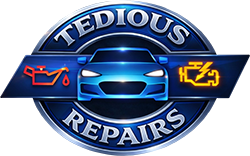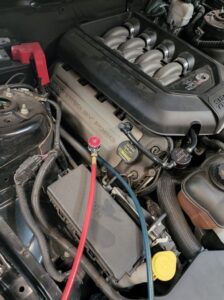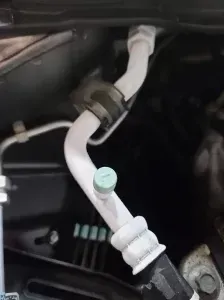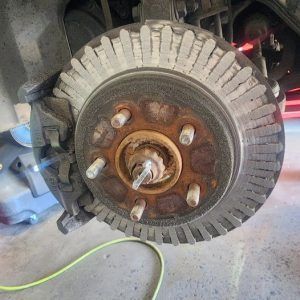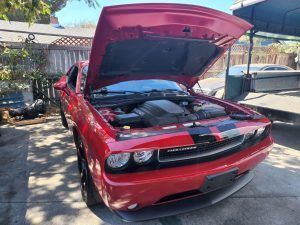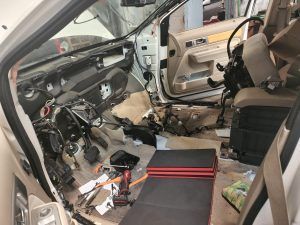Radiator 101: Why Regular Maintenance Is Important
If you want your engine to be in top shape, then regular maintenance for your radiator is absolutely essential. The radiator plays a crucial role in keeping your engine cool and preventing it from overheating. By understanding the function of a radiator and implementing regular maintenance practices, you can ensure that your engine stays in optimal condition for longer.
One of the most important aspects of radiator maintenance is flushing and cleaning it regularly. This process helps remove any debris, rust, or sediment that may have accumulated in the radiator, improving its efficiency and preventing blockages.
Additionally, regularly checking for leaks and repairing them promptly is crucial to prevent coolant loss and potential engine damage.
Another key element of radiator maintenance is replacing coolant and keeping an eye on coolant levels. Coolant not only helps regulate the engine’s temperature but also protects it from corrosion. By regularly replacing coolant and monitoring levels, you can prevent overheating and costly repairs.
While some radiator maintenance tasks can be done by yourself, it’s always a good idea to seek professional help for more complex repairs and maintenance. Experts can diagnose potential issues, provide comprehensive solutions, and ensure that your radiator is functioning at its best.
By prioritizing regular maintenance for your radiator, you can keep your engine running smoothly and avoid costly repairs down the line. So don’t overlook the importance of radiator care – it truly is your engine’s best friend.
Key Takeaways
– Regular maintenance for the radiator is essential for preventing overheating and keeping the engine in top shape.
– Flushing and cleaning the radiator regularly removes debris, rust, and sediment, improving efficiency and preventing blockages.
– Checking for leaks and repairing them promptly is crucial to prevent coolant loss and engine damage.
– Replacing coolant and monitoring coolant levels helps regulate the engine’s temperature and protect it from corrosion.
Understanding the Function of a Radiator
You need to understand how the radiator works because it’s crucial for keeping your engine cool and preventing overheating. The radiator is an integral part of your vehicle’s cooling system. It works by transferring heat from the engine to the surrounding air, ensuring that the engine operates at an optimal temperature.
The radiator consists of a series of tubes and fins that allow coolant to flow through them, while the air passing over the fins helps dissipate the heat.
However, like any other component in your vehicle, the radiator is prone to common problems. One such issue is a leak, which can occur due to corrosion, wear and tear, or damage from road debris. Another sign of a failing radiator is overheating. If you notice that your engine temperature gauge is constantly in the red zone or if steam is coming from under the hood, it’s likely that your radiator is not functioning properly. Ignoring these warning signs can lead to serious engine damage.
Understanding the common radiator problems and signs of a failing radiator emphasizes the importance of flushing and cleaning your radiator regularly. By performing this maintenance task, you can remove built-up debris, rust, and sediment that can obstruct the flow of coolant. This ensures that your radiator functions at its best and helps prevent costly repairs down the road.
The Importance of Flushing and Cleaning Your Radiator Regularly
Regularly flushing and cleaning your radiator is essential for preserving the longevity and efficiency of your vehicle’s cooling system. By doing so, you can reap the benefits of using radiator flush solutions. These solutions are specially formulated to remove rust, scale, and other deposits that accumulate over time.
To create a mental picture, imagine the flush solution as a powerful solvent that dissolves all the gunk and debris inside your radiator. It then flushes out these contaminants, leaving your radiator clean and free-flowing. This process ensures that your coolant can circulate properly, preventing overheating and potential engine damage.
One common sign of a dirty radiator is overheating. If your engine temperature gauge is consistently rising, it’s a clear indication that your radiator needs attention. Other signs include a coolant leak, a sweet smell from the engine, or a low coolant level.
To prevent these issues, regular radiator maintenance is crucial. Flushing and cleaning your radiator every 2 years or 30,000 miles (whichever comes first) is recommended. Additionally, using a high-quality coolant and maintaining the proper coolant level will help keep your radiator in top shape.
By taking care of your radiator, you can avoid costly repairs and ensure your engine stays cool under all conditions.
Now, let’s move on to the next section about checking for leaks and repairing them promptly.
Checking for Leaks and Repairing Them Promptly
Don’t ignore the signs of leaks in your cooling system and take immediate action to fix them before they cause irreversible damage. Leak detection is a crucial part of radiator maintenance and can help prevent major engine issues. Signs of radiator damage include low coolant levels, overheating engine, and puddles of coolant under the car. To ensure your radiator is in good condition, it is important to regularly inspect it for any leaks.
One effective way to detect leaks is by using a pressure tester. This device applies pressure to the cooling system and helps identify any leaks or weak spots. Another method is to visually inspect the radiator and hoses for any signs of coolant leakage. Look for wet spots, stains, or dried coolant residue. Additionally, pay attention to any unusual smells or steam coming from the engine compartment, as this could indicate a leak.
If you do find a leak, it is crucial to repair it promptly. Ignoring a leak can lead to coolant loss, engine overheating, and potential engine damage. Depending on the severity of the leak, repairs can range from simply tightening a loose clamp to replacing a damaged hose or radiator. Remember to use the appropriate tools and materials for the repair and consult a professional if needed.
By addressing leaks in your cooling system, you can prevent further damage and extend the life of your radiator. Now let’s move on to the next section, which focuses on replacing coolant and keeping an eye on coolant levels.
Replacing Coolant and Keeping an Eye on Coolant Levels
When it comes to keeping your vehicle running smoothly, one important task is replacing the coolant and keeping a close eye on its levels. Proper coolant maintenance is crucial for the health of your engine and can help prevent potential issues down the line.
Here are some coolant replacement tips and signs of coolant system issues to be aware of:
1. Regular Coolant Replacement: It’s recommended to replace your coolant every 2-5 years, depending on the manufacturer’s guidelines. This ensures that the coolant remains effective in its heat transfer properties and prevents corrosion.
2. Checking Coolant Levels: Regularly check the coolant levels in the radiator and expansion tank. Low coolant levels can lead to overheating and engine damage. If you notice a decrease in coolant levels, it may indicate a leak in the system.
3. Signs of Coolant System Issues: Pay attention to signs of coolant system problems such as coolant leaks, overheating, or a sweet smell inside the vehicle. These issues could indicate a faulty radiator, water pump, or a leaking hose.
By following these coolant replacement tips and being vigilant for signs of coolant system issues, you can ensure that your engine stays cool and runs smoothly. If you encounter any issues or are unsure about performing maintenance yourself, it’s advisable to seek professional help for radiator maintenance and repairs.
Seeking Professional Help for Radiator Maintenance and Repairs
If you want to ensure your vehicle stays in top shape and avoid any potential headaches, it’s time to consider seeking professional help for radiator maintenance and repairs.
While some car owners may attempt DIY radiator maintenance, it is important to understand the benefits of professional assistance. A professional radiator technician possesses the expertise and tools necessary to accurately diagnose and address any radiator issues.
One of the key signs of radiator damage is a coolant leak. If you notice a puddle of coolant under your vehicle or consistently need to refill the coolant reservoir, it is a clear indication of a problem.
Additionally, an overheating engine can also be a sign of radiator trouble. If your engine temperature gauge is consistently in the red zone or if you see steam coming from under the hood, it is crucial to seek professional help immediately.
When it comes to radiator maintenance and repairs, it is best to leave it to the professionals. They have the knowledge and experience to efficiently flush the radiator, replace worn-out parts, and ensure the system is working optimally.
Attempting DIY repairs without proper training can lead to further damage and costly repairs in the long run.
To keep your engine running smoothly and to avoid any potential breakdowns, it is wise to consult a professional for radiator maintenance and repairs. They will ensure that your radiator is functioning properly, allowing your engine to operate at its best and keeping you on the road safely.
Frequently Asked Questions
How often should I flush and clean my radiator?
Flush and clean your radiator every 2-3 years to ensure optimal performance. Regular maintenance prevents clogs, rust, and overheating. By keeping your radiator clean, you enhance cooling efficiency, extend the lifespan of your engine, and avoid costly repairs.
Can I use any type of coolant in my radiator?
No, you cannot use any type of coolant in your radiator. Coolant compatibility is crucial to prevent damage. Ensure you choose the appropriate radiator coolant options for your vehicle to maintain optimal performance and prevent costly repairs.
How do I know if my radiator is leaking?
To detect a radiator leak, look for signs of coolant puddles under your vehicle, a sweet smell in the cabin, or an overheating engine. Common causes of radiator leaks include corrosion, worn-out hoses, or a damaged radiator cap.
What are the signs that my coolant levels are low?
If you notice your engine overheating, a sweet smell, or a low coolant warning light, these are signs of low coolant levels. Maintaining proper coolant levels is crucial to prevent engine damage.
How much does it typically cost to seek professional help for radiator maintenance and repairs?
The cost of professional radiator maintenance and repairs can vary depending on the specific problem and the mechanic’s rates. Common radiator problems include leaks, clogs, and thermostat issues.
Conclusion
In conclusion, maintaining your radiator is essential for keeping your engine in optimal condition. Regular flushing and cleaning helps remove debris and prevent clogs, ensuring efficient cooling.
Promptly repairing leaks prevents further damage and maintains the radiator’s effectiveness.
Replacing coolant and monitoring levels prevents overheating and potential engine damage.
Remember, seeking professional help for radiator maintenance and repairs ensures expert handling and extends the lifespan of your engine. By giving your radiator the attention it needs, you’ll keep your engine running smoothly for years to come.

